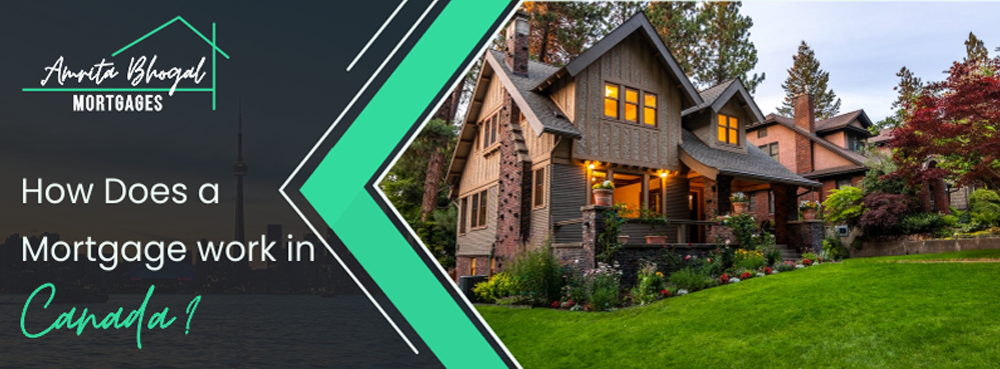
How to find an independent mortgage broker?
October 27, 2022You’ve probably heard a lot of myths about mortgages – especially if you’re a first-time home buyer. We’re here to set the record straight and give you all the information you need to know about how mortgages work in Canada. Keep reading to find out more!
Interest Rates:
The interest rate is the percentage of the loan that the lender charges for borrowing money. The interest rate can be fixed or variable.
A fixed interest rate means that your payments will stay the same for the entire term of your mortgage, regardless of changes in the market.
A variable interest rate means that your payments will increase or decrease along with interest rates in the market.
The majority of people opt for fixed interest rates because it makes budgeting easier. However, if you think rates may drop in the future, a variable rate could save you money.
It’s important to note that if you have a variable interest rate, your minimum payment will usually only cover the interest owing on your mortgage – not the principal (the amount you borrowed). This means that it could take longer to pay off your mortgage if rates rise.
Fixed Rate/Variable Rate? This decision is dependent on your risk tolerance, financial strategy and how sound your source of income is.
Types of Mortgages:
There are two main types of mortgages available in Canada: conventional mortgages and high-ratio mortgages.
To qualify for a conventional mortgage, you must have a minimum 20% of the purchase price down payment.
If you have less than 20% for a down payment, you will require default insurance through CMHC, Genworth Financial and Canada Guaranty.
High-ratio mortgages are available if you have at least a 5% down payment but less than 20%. These types of mortgages also require default insurance which protects lenders if borrowers are unable to make their mortgage payments and default on their loan which can give you more flexibility if you come into some extra money and want to pay off your mortgage faster. However, open mortgages typically have higher interest rates than closed ones.
Amortization Period and Term:
The amortization period is the amount of time it will take to pay off your mortgage if you make regular payments of the same amount each month. The term is the length of time you must make regular payments on your mortgage. In Canada, mortgages typically have a 5-year term, with a 25-year amortization period.
You can choose to pay off your mortgage faster by making larger payments each month or making regular "accelerated" payments. Accelerated payments are extra payments that you make above your regular monthly payment amount. These extra payments go towards paying off both the principal (the amount you borrowed) and any accumulated interest charges. Making accelerated payments can help you save money on interest and pay off your mortgage sooner.
How Much Mortgage Can I Afford?
The best way to figure out how much mortgage you can afford is to use an online calculator like this one from Amrita Bhogal Mortgages. Enter in your information including annual income, debts, and down payment, and it will tell you how much house you can afford based on current interest rates. You can also speak with a mortgage broker to get more personalized advice.
Payment Frequency:
Payment frequency is how often you make your mortgage payments and what are your options:
- Monthly—1 payment per month
- Semi-monthly—2 payments per month (monthly payment ÷ 2)
- Biweekly—1 payment every 2 weeks (monthly payment X 12 ÷ 26)
- Weekly—1 payment per week (monthly payment X 12 ÷ 52)
- Accelerated biweekly—1 payment every 2 weeks (monthly payment ÷ 2)
- Accelerated weekly—1 payment per week (monthly payment ÷ 4)
Requirements for Getting a Mortgage:
In order to get a mortgage in Canada, you must have a down payment of at least 5% of the purchase price of the property. You will also need proof of income and employment, as well as a good credit score.
Conclusion: Now that we’ve busted some common mortgage myths, you should better understand how they work in Canada. If you’re still feeling unsure or have any questions, reach out to Amrita Bhogal Mortgages – they would be more than happy to chat with you and help however they can!
FAQ
1Who is eligible for a mortgage in Canada?
In Canada, becoming a mortgage holder is an exciting and rewarding endeavour for many. In order to be eligible for a mortgage, potential homeowners need to demonstrate that they have a steady income and employment history, suitable credit history, and a deposit typically equal to 10-20% of the house’s purchase price. Apart from the mortgage loan itself, real estate brokers can assist in navigating the mortgage process and helping buyers make their dreams of homeownership become a reality. Whether you are buying your first house or looking to make an upgrade, talk to our expert today at Amrita Bhogal Mortgages!
2How much can I borrow with a mortgage in Canada?
As a homeowner in Canada, it can be quite daunting to decide how much you should borrow with a mortgage. Fortunately, mortgage advisors are available to help guide and inform potential homeowners about the vast array of options available for financing their dream house. With mortgage rates continually fluctuating, there is no one-size-fits-all answer for how much you can borrow with a mortgage in Canada. Real estate advisors adhere to the guideline of borrowing no more than four times your gross income and up to approximately 40% of your home's worth. It's important to note that these figures differ from lender to lender and depend largely on individual factors such as credit rating, debt-to-income ratio and your history with mortgage payments. For an accurate assessment of what mortgage loan is best suited to you and your budget, talking with an experienced mortgage broker at Amrita Bhogal Mortgages is recommended.


